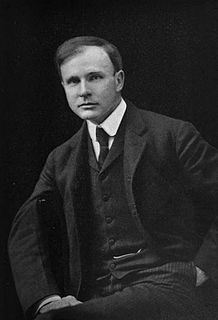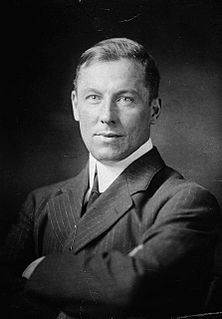A Quote by Bliss Perry
... the radical deficiency of imagist verse, as such, is in its lack of general ideas. Much of it might have been written by an infinitely sensitive decapitated frog. It is hemisphereless poetry.
Quote Topics
Related Quotes
Imagism was a reductio ad absurdum of one or two tendencies of romanticism, such a beautifully and finally absurd one that it is hard to believe it existed as anything but a logical construction; and what imagist found it possible to go on writing imagist poetry? A number of poets have stopped writing entirely; others, like recurring decimals, repeat the novelties they commeced with, each time less valuably than before. And there are surrealist poetry, and political poetry, and all the othe refuges of the indigent.
Verse in itself does not constitute poetry. Verse is only an elegant vestment for a beautiful form. Poetry can express itself in prose, but it does so more perfectly under the grace and majesty of verse. It is poetry of soul that inspires noble sentiments and noble actions as well as noble writings.
One of the interesting things about the history of poetry in the 16th, 17th, and 18th centuries is that people who read liked getting their information in rhyme just as much as in prose. The genre that we would think of as nonfiction often was written in verse in forms like the Georgic when people thought that one of the tasks of poetry was conveying arguments and information in a pleasant way.
The male frog in mating season," said Crake, "makes as much noise as it can. The females are attracted to the male frog with the biggest, deepest voice because it suggests a more powerful frog, one with superior genes. Small male frogs—it's been documented—discover if they position themselves in empty drainpipes, the pipe acts as a voice amplifier and the small frog appears much larger than it really is." So?" So that's what art is for the artist, an empty drainpipe. An amplifier. A stab at getting laid.
Two radical ideas have been introduced into human thought. One of them is that energy and matter are pretty much the same sort of stuff. That's Einstein. The other is that revenge is a bad idea. Revenge is an enormously popular idea but, of course, Jesus came along with the radical idea of forgiveness. If you're insulted, you have to square accounts. So this invention by Jesus is as radical as Einstein's.




































